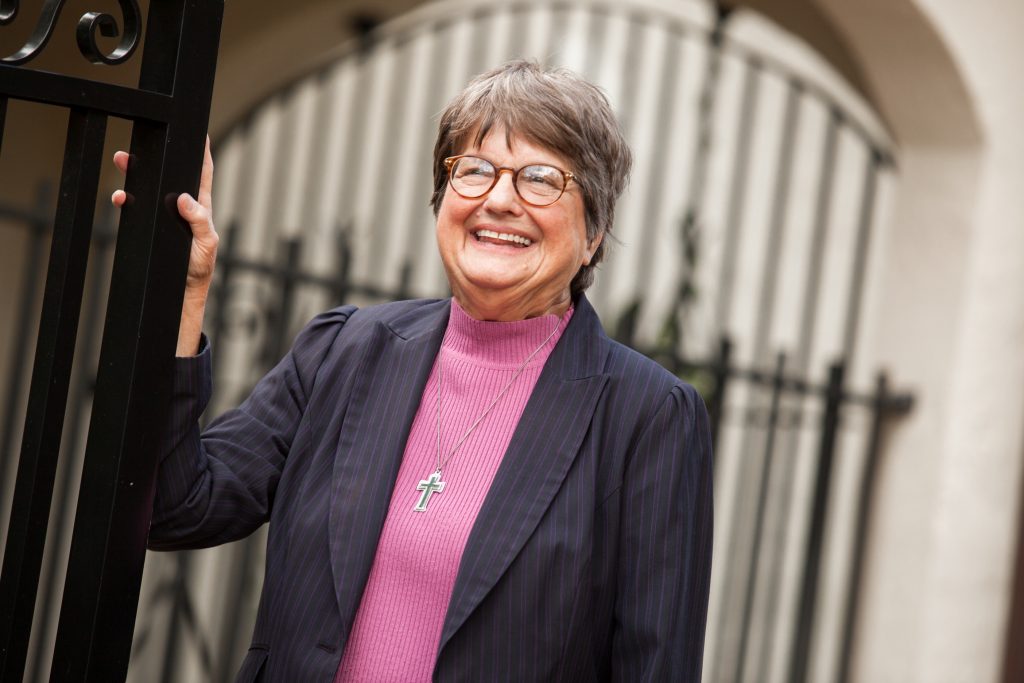Capital punishment has been used in the United States since its independence from the United Kingdom and is still applied in many of the 50 states today, with most executions in Texas, Virginia, Georgia, and Alabama. Over time, advocates have agreed that the death penalty is morally wrong and they argued that it should be considered unconstitutional, yet they have not achieved an end to capital punishment in either state legislatures or in the Supreme Court.1
During the 1700’s, advocates against the death penalty were able to restrict this punishment to those committed heinous crimes. In 1847, the anti-death penalty community helped capital punishment to be removed from Michigan. This was changed after World War I ended. In 1924, the state of Nevada decided to use lethal gas as an execution process. Then came the execution of Gee Jon for murder, which brought back death as the punishment for inflicting death or murder. 2 Anti-death penalty movements did not regain strength until Sister Helen Prejean helped to cast the debate in different terms.

Since 1981, Sister Helen Prejean has been a strong voice, and a most prominent one in the anti-death penalty community. Most humans and governments will not heed God’s commandment Thou Shall not Kill, but Sister Prejean became a strong advocate for that commandment. Beyond the religious imperative, Prejean explains how capital punishment is not useful in any way and is very dysfunctional. She has dedicated her life to God in the prison ministry in New Orleans. While Sister Prejean was living in the St. Thomas housing project, she began to write to a man who was convicted of killing two teenagers, Patrick Sonnier. Sonnier was to be executed by the electric chair in the State Prison of Louisiana.3
While Sister Prejean continuously visited Sonnier, she realized that executions were a huge issue, not only in Louisiana, but around the world. Sister Prejean wrote about her experiences in the book she wrote Dead Man Walking: An Eyewitness Account of the Death Penalty.4 She writes and explains how Louisiana’s prison system corrupts those who are involved with carrying out the execution. Especially security guards or “prison wardens” are not alert when working, along with working in that environment, is the feeling of being stressed. The stress can cause them to react in a certain ways toward prisoners and even accept the death penalty against them.5 Prejean mentions how many politicians support the death penalty mainly because they do not want to be mocked for being weak on crime by having an anti-death penalty stance.6
Helen Prejean during these times took the initiative to spend time with the victims’ families and understand why the death penalty is a win for them. The reason the victims’ families believe this is a pro for them is because it is “healing” and they receive “faux closure”. During those fifteen years, she continued to witness five other executions in Louisiana and to this day gives the younger generation information on the death penalty by writing and giving lectures.7
Prejean always took the anti-death penalty to the political system and even caused a few battles with some victories that were not big, but in that time it was still something to her. She did everything she could to gain justice, but the movement ultimately could not completely end capital punishment in the US.8

Prejean did her best to abolish the death penalty and she always gave many reasons for it, but with the issues coming against the fear of criminals and the devaluation of human lives, it is still unlikely to see its eradication in the US. Today, Prejean as the founder of “Survive” runs this victim’s advocacy group in New Orleans. In addition to that, she counsels inmates who are on death row and she provides support to the families of victims who were murdered.
Barry Scheck’s Innocence Project helps those who are innocent to increase awareness and prevent execution. Prejean has received an award from the Innocence Project of Florida for her outstanding work in advocating against the death penalty. “Sister Helen asked…”, during her speech, “…but what about the people advocating and fighting for them and the people working at innocence projects?”.9
No matter the outcome, fighting for what is morally right continues to drive advocates who stand against the death penalty. Prejean will continue to investigate flaws in the death penalty system which has led to many innocents being wrongly executed. Sister Prejean questions the justice system because of the discriminatory way that capital punishment is disproportionately applied to minorities. As she continues, there is still hope in Washington for the Death Penalty to be removed. Senator Miloscia warns against the killing of innocent people, he calls these “improper death penalty executions.”10 Although many still support the death penalty, change occurs when new elected officials like Governor Inslee pronounce themselves against capital punishment. As we learned from Sister Prejean, fighting for justice is a moral commandment.
- George Brauchler and Rich Orman, “Lies, Damn Lies, and Anti-Death Penalty Research,” 93, no. 3 (2005): 635-714. ↵
- McLaughlin, Jolie. “The Price of Justice: Interest-Convergence, Cost, and The Anti-Death Penalty Movement,” Northwestern University Law Review,108, no. 2 (2014): 675-710. Academic Search Complete, EBSCOhost. ↵
- “Biography” Sister Helen Prejean. https://www.sisterhelen.org/biography/.(2018). ↵
- Helen Prejean, Dead man walking: an eyewitness account of the death penalty in the United States, (New York: Vintage Books, (1994). ↵
- Lewis, Dorothy Otnow, Catherine A. Yeager, Pamela Blake, Barbara Bard, and Maren Strenziok. “Ethics Questions Raised by the Neuropsychiatric, Neuropsychological, Educational, Developmental, and Family Characteristics of 18 Juveniles Awaiting Execution in Texas.” Journal Of The American Academy Of Psychiatry And The Law, 32. No.4 (2004): 408-429 PsycINFO, EBSCOhost. ↵
- Daniels, Kristen Whitney. “Helen Prejean sways hearts with stories.” National Catholic Reporter 53(24), (2017): 1a-2a. ↵
- Press Release. “Innocence: Another Exoneration from Death Row—Reginald Griffin of Missouri,.” Death Penalty Information Center. (2015). ↵
- Mallory, Conally. “Abolitionists at home and abroad: a right to consular assistance and the death penatly.” Melbourne Journal Of International Law no. 1 (2016). ↵
- De La Fuenta, Alejandra. “My Experience at Innocence Project of Florida’s 2016 Steppin’Out Spring Gala.” Plain Error: The Official Blog of The Innocence Project of Florida. (2016) ↵
- Lauren Gill, “End of the Death Penalty? Washington Could Become the Next State to Abolish Capital Punishment” Newsweek, (2018). ↵



121 comments
Engelbert Madrid
The death penalty is a controversial topic, which many Americans do not like to discuss about. I know that many Christians do not believe that the death penalty is a moral decision due to the scriptures of the Bible. However, some people believe it’s right for the criminals to be killed through the death penalty for murdering innocent, vulnerable people. Although I have mixed feelings about the death penalty, this article is short but right to the point on why Helen Prejean believes the death penalty is morally wrong in America.
Eric Ortega Rodriguez
The death penalty is a very controversial topic; however, the author tackles it very well and does an amazing job in informing the audience of Sister Helen Prejean’s advocacy against the death penalty which is something that is still very relevant today. I admire Prejean because she fights for what she believes and does her best to get different perspectives of the argument, which is something that should be done in every argument or conflict. Overall, this was a very fascinating and well-written article.
Leonardo Gallegos
This article impacted the way I view the death penalty but I think regardless of what one’s opinion is on this subject, Prejean should be given credit for standing up for what she believes in. The death penalty is a very sensitive and controversial topic so I really appreciate the effort and information presented in this article.
Alexandra Lopez
The death penalty has been a controversial issue since the beginning of this nation. From the perspective of either moral, religious, or legal the question on whether it is right or wrong has been difficult. The author of this article did not make any comment on her belief but focused on the main subject and shared Sister Prejean’s goals for this country on the death penalty. (reposted)
Samantha Luckey
This is an interesting article regarding a contentious debate. Despite my own opinion of the subject, I found this article to bring a new enlightened look on the death penalty. This article serves as a reminder of how a person’s morality can shape one’s life. I appreciate this article illustrating Sister Helen Prejean’s contribution to confronting the death penalty debate.
Irene Astran
Before this year I had never really been challenged to think about my stance of the death penalty. After much discourse and education on the meaning of human dignity I can say that I do not believe that deciding on this as a penalty is not our decision to make. I wholeheartedly back efforts to promote restorative justice. Answering violence with violence is not the answer.
Gabrien Gregory
I always find it interesting when Catholics and Christians, people of faith, support the death penalty. To me, the concept “thou shalt not kill” is cut and dry. I appreciate this article shining light on Sister Helen Prejean’s efforts on this issue in the United States. I have read some more information in the past regarding the death penalty and its psycholgical impact on the American society – I would add those findings in the study to back up how morally wrong capital punishment is. A society with a death penalty is known to not only be immoral to many and raise expenses, but it also increases the positive mentality for crime and murder, as studies show. -Reposted from Aug 29. on WP
Luis Magana
The title of this article really caught my attention. It sounds so potent and strong. The death penalty has always been very controversial with many people agreeing and disagreeing. The death penalty can be something very harsh but some people agree with it. I personally think it should be thought out more and it should be a longer process before the death penalty is executed. There are many outside factors as well when it comes to the death penalty because people would rather not use their taxes to support a dangerous inmate.
Montserrat Moreno Ramirez
I found this article very interesting since the author used a really controversial topic. In many states and actually many countries now, theres a debate about this. If it’s right or not, if it’s a sin or not, if people should pay the same level as the crime committed or not. In my personal opinion, i think that Sister Helen had a good point of view, but there’s always another side of the coin.
Damian Jennings
The death penalty in my eyes is a waste of money and is funded someone, or something to my knowledge; nothing is free and I have concluded that we as a society are allowing the government to kill those who are charged with extreme criminal backgrounds. We should all advocate for the anit-death perspective, life is precious and we should not play God, for us to take away someones life is cowardly and immoral. Sister Prejean has the right mindset and is doing everything in her power to abolish this method of murder.